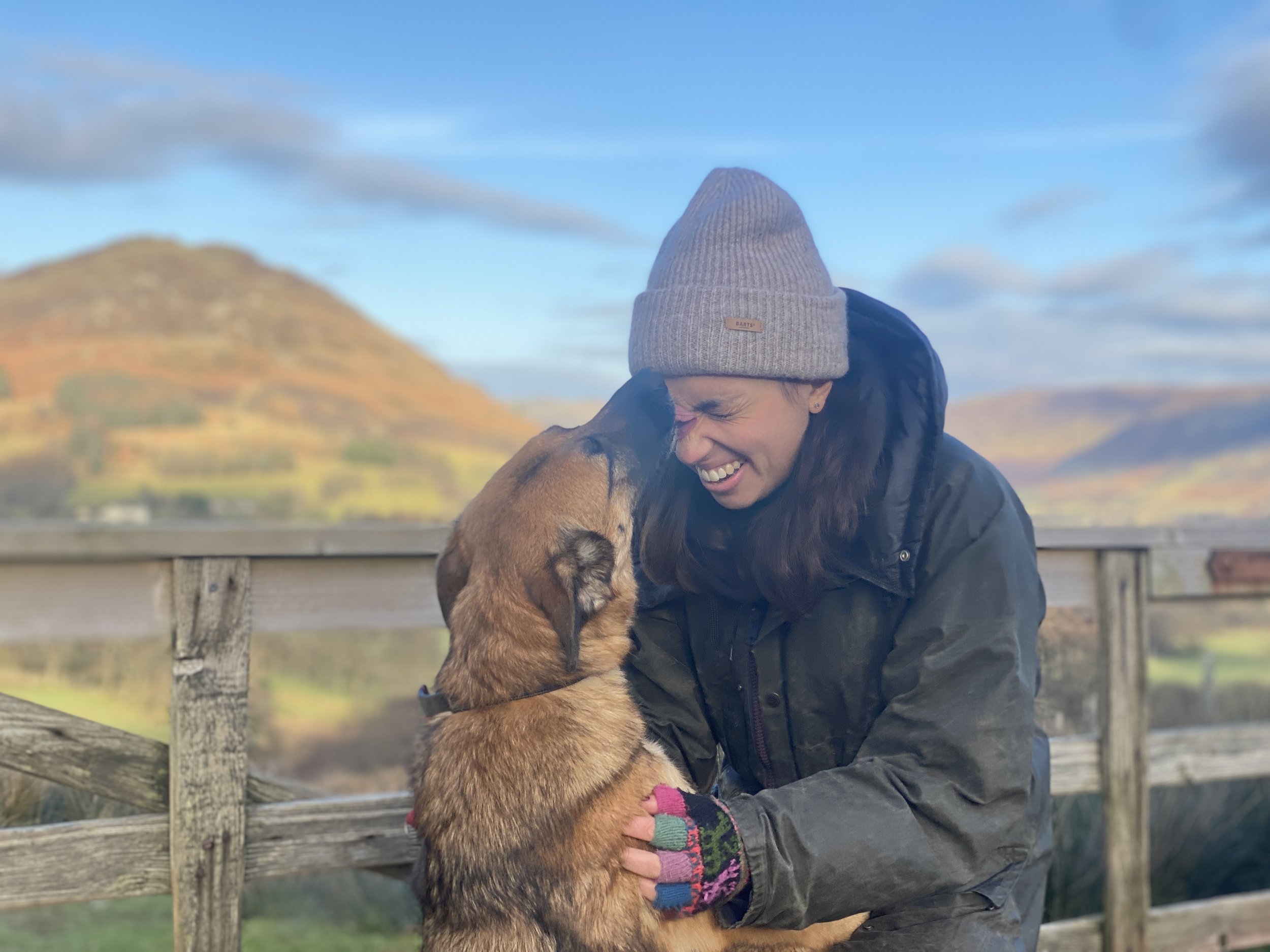
BECOMING A DOG TRAINER OR BEHAVIOURIST
HOW TO BECOME A DOG TRAINER OR BEHAVIOURIST
Trainer or Behaviourist
Training is essentially your learning theory and exercises such as recall, loose lead walking, drop it etc and is so often a large part of the answer to behaviour problems but absolutely not the whole answer.
Behaviour goes deeper into the biochemistry or the brain, internal, external environment of the dog, the use of pharmacology etc. Behaviourists are are helping your dog be calm, confident and relaxed meaning the behaviour problems may be resolved but if there is any left over, learnt element of the behaviour problem, the behaviorist’s helps your dog be in the best state to be able to learn.
This means Behaviourists should be more equipped to deal with fear phobia, anxiety & aggression and trainers things like recall, jumping up, loose lead walking etc but then these are likely to have an underlying behavioural element to them.
However in my humble experience there are some ‘Trainer’s’ who really are amazing with behaviour from there ongoing experience and professional development and there are some behaviourists who academically know their stuff but actually are rubbish when it comes to the actual art of training. In fact training plays such an important part in addressing behaviour that in my opinion even though I am both, I have interchangeably referred to myself as trainer or behaviourist.
So my point is do you want to be a trainer or behaviourist? Well lets assume you aspire to know it all and be great at your job? So to get there you could start as trainer and become behaviourist which I think is very valuable or you could go straight to behaviour by studying longer initially. However please don’t under estimate how important the technical skill of training is too and knowing exercises that can achieve the goals you academically know.
So how do you get there….?
This is absolutely not the only way to go but my suggestions are…
University
If you can go to university for three years and study up to level 6 do it! If you want a job afterwards or work experience give us a shout. And yes I would definitely expect you would start on higher pay rates but also the experience is of huge value and requirement.
Courses wise there are some listed below but also check out Angela Ruskin Univeristy, Writtle University, Harper Adams etc.
From uni, a couple of years working in rescue could be very valuable before joining a company like ours.
Non University:
However If you have had a career change, can’t / don’t want go to University / already know a lot etc then you can definitely study all the theory at home and gain experience elsewhere so for starters check out:
CCPDT
This is more an exam for accreditation than a course. But the exam syllabus is there so if you wished to study from books and short courses you could find out the sort of things and experience you need to know to eventually pass here.
I like it because its a good course and if you already know a lot you only need to study what you don’t know and then prove you know the rest in the exam. It is the first official qualification I took.
https://www.ccpdt.org/certification/dog-trainer-certification/about-the-examination/
Note: you need at least 300 hrs of hands on training experience to pass which working with us you could get. In my experience it’s one of the most cited qualifications in articles. Though it is bigger in the USA. In fact there are not that many UK certificate holders and not on the ABTC list.
PACT
This is more expensive that CCPDT but is a course with some weekends away. It will teach you to a great level and you will leave with an ABTC recognised qualification, so if you are starting out, got the recources and not going to uni this would be first choice.\
APDT
Also….
www.apdt.co.uk ATI
Behaviour (Compass)
Once accredited to one of these, work for a few years and then its time to get your level 5+ behaviour qualifications under your belt. Again uni is an option but Compass do a Level 5 and 6 ABTC recognised course. At this level it gets a lot more academic.
https://www.compass-education.co.uk/cpd-courses/adv-dip-animal-behaviour-management-cpd/
You will also need to do Continuing Education Units every 3 years for things like CCPDT.
Other Accreditation Bodies
Association of Pet Behaviour Counsellors
www.apbc.org.uk ABT, CAB, VB
Association of Pet Dog Trainers
www.apdt.co.uk ATI
Dog Knows
www.dogknows.co.uk ATI
Fellowship of Animal Behaviour Clinicians
www.fabclinicians.org CAB, VB
International Association of Animal Behaviour Consultants
iaabc.org AAB
Karen Pryor Academy
www.karenpryoracademy.com ATI
The Canine Behaviour & Training Society
www.tcbts.co.uk ATI, AAB, ABT, CAB
Professional Association of Canine Trainers
www.pact-dogs.com ATI
What else?
From there you may move to veterinary behaviour, research etc and start re writing the book on dog training.
Equally after Level four you may decide behaviour is not so much your thing and you want to focus more on agility or scent work, or service dog training or tricks. Equally as you do them you will find how behaviour is important for them and how they help with behaviour.
Its one big circle so the more experience you have the better.
Experience
On that note, getting a-wide range of experience is really valuable so go volunteer at all the rescues. Shadow as many different trainers as you can. Be a dog walker and meet hundreds of different dogs and practice on them. I was lucky but maybe also unlucky in that I got a lot of work quite quick. This meant I got a lot of experience with lots of dogs and people but I didn’t observe as many different professionals to learn from. So try and strike a balance and not rush into one thing.
Okay some courses….
ABTC Recognised University Courses
Animal Trainer
DipHE Animal Management (Pet Behaviour and Welfare) [MP]– Writtle University College click here for link
DipHE Animal Science (Pet Behaviour and Welfare) [MP] – Writtle University College click here for link
BSc (Hons) Animal Management (Pet Behaviour and Welfare) [MP] – Writtle University College click here for link
BSc (Hons) Animal Science (Pet Behaviour and Welfare) [MP] – Writtle University College click here for link
Animal Behaviour Technician
Advanced Diploma Applied Animal Behaviour level 5 [DL] – Compass Education Ltd click here for link
BSc (Hons) Animal Management (Pet Behaviour and Welfare) [MP] – Writtle University College click here for link
BSc (Hons) Animal Science (Pet Behaviour and Welfare) [MP] – Writtle University College click here for link
Clinical Animal Behaviourist
BSc (Hons) Animal Behaviour and Welfare (Clinical) – Harper Adams University click here for link
MSc or PGDip Clinical Animal Behaviour [DL] – University of Edinburgh click here for link
MSc or PGDip Clinical Animal Behaviour – University of Lincoln click here for link
BSc (Hons) Animal Management (Pet Behaviour and Welfare) [MP] – Writtle University College click here for link
BSc (Hons) Animal Science (Pet Behaviour and Welfare) [MP] – Writtle University College click here for link
Intro Courses
If you are not quite sure yet and just want a little intro perhaps check out…
Level 2-3 training and behaviour
https://www.compass-education.co.uk/Canine-Behaviour-and-Training-Diploma-p/csc-canbt.htm
Level 3 dog training
https://www.compass-education.co.uk/Canine-Behaviour-and-Training-Diploma-p/csc-canbt.htm
Level 3- Prep for skipping to Level 5
Good if you just want to go straight to behaviour but not quite ready.
https://www.compass-education.co.uk/Foundations-of-Canine-Behaviour-Management-Diploma-p/csc-fcbm.htm
Level 3 IMDT
https://www.imdt.uk.com/correspondence-courses/level-three-6-months-learning-motivation-and-reinforcement/
Canine First Aid
First Aid
https://www.compass-education.co.uk/Canine-First-Aid-Certificate-p/csc-canfac.htm
https://www.dog-first-aid.com/courses/dog-first-aid
Reading
Intro:
Pryor K (2002) Don’t Shoot The Dog Lydney. Ringpress. Surrey, England.
Pryor K (2010 )Reaching the Animal Mind: Clicker Training and What It Teaches Us About All Animals.
Great complete reads for non professional & Professional
Rogerson J (2011) Dog Vinci Code. Metro Books, London.
Glazebrook, L (2021) The Book your Dog wishes you would read. Orion Spring london
Complete Book for Proffesionals
Lindsay S (2000) Handbook of Applied Dog Behaviour and Training. Volume 1 Iowa State University Press
Lindsay S (2001) Handbook of Applied Dog Behaviour and Training. Volume 2 Iowa State University Press
Lindsay S (2005) Handbook of Applied Dog Behaviour and Training. Volume 3 Iowa State University Press.
Essential Learning Theory
Reid P J (1996) Excel-erated Learning. California. James and Kenneth Publishing. Toronto.
Reading List:
Aloff, Brenda (2002) Aggression in Dogs. Wentachee. Dogwise.
Aloff, Brenda (2009) Canine Body Language. A Photographic Guide: Interpreting the Native Language of the Domestic Dog. Wentachee. Dogwise.
Barry J (2008) The Ethical Dog Trainer: A Practical Guide for Canine Professionals. Washington. Dogwise Publishing.
Bradhsaw J (2011) In Defence of Dogs. London. Penguin.
Coppinger R, Coppinger L (2001) Dogs: A Startling New Understanding of Canine Origin, Behavior Evolution. New York. Scribner.
Glazebrook, L (2021) The Book your Dog wishes you would read. Orion Spring london
Lindsay S (2000) Handbook of Applied Dog Behaviour and Training. Volume 1 Iowa State University Press
Lindsay S (2001) Handbook of Applied Dog Behaviour and Training. Volume 2 Iowa State University Press
Lindsay S (2005) Handbook of Applied Dog Behaviour and Training. Volume 3 Iowa State University Press.
McDevitt L (2007) Control unleashed. South Hadley. Clean Run Productions.
Mackinnon P (2007) Detector dog: A Talking Dogs Scentwork Manual. Hubble & Hattie. Dorchester
Pryor K (2002) Don’t Shoot The Dog Lydney. Ringpress. Surrey, England.
Pryor K (2010 )Reaching the Animal Mind: Clicker Training and What It Teaches Us About All Animals.
Reid P J (1996) Excel-erated Learning. California. James and Kenneth Publishing. Toronto.
Rogerson J (2011) Dog Vinci Code. Metro Books, London.
Rugaas T (2005) On Talking Terms with Dogs: Calming Signals. Dogwise Publishing. Washington.
Rugaas T (2008) Barking. Dogwise Publishing. Washington.
Ryan T (2005) Coaching People to Train Their Dogs. Legacy Canine Behavior and Training, Inc. USA.
Swagger P (2015) Rescue Your Dog from Fear. Conneticut. Lyons Press.
Swagger P (2008) Training the Hard-to-Train Dog. China. TFH Publications Inc.
Swagger, P (2012): Solving Separation Anxiety in Dogs. DVD. Dogwise.com.
Interested in having a role as a dog trainer or behaviourist?
Check out careers page for more details
